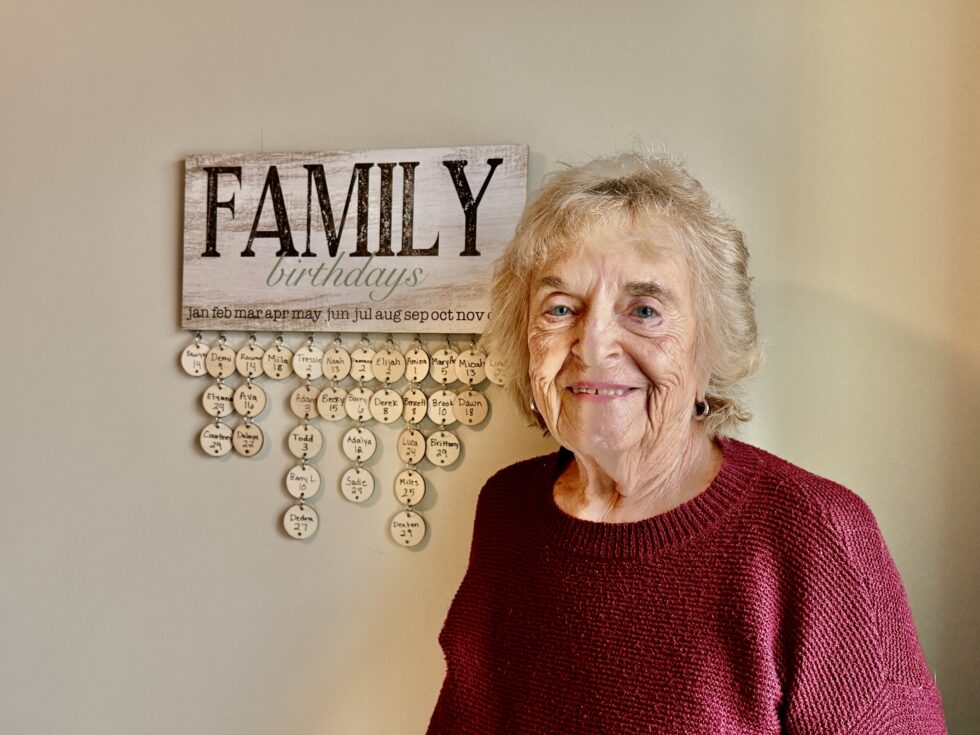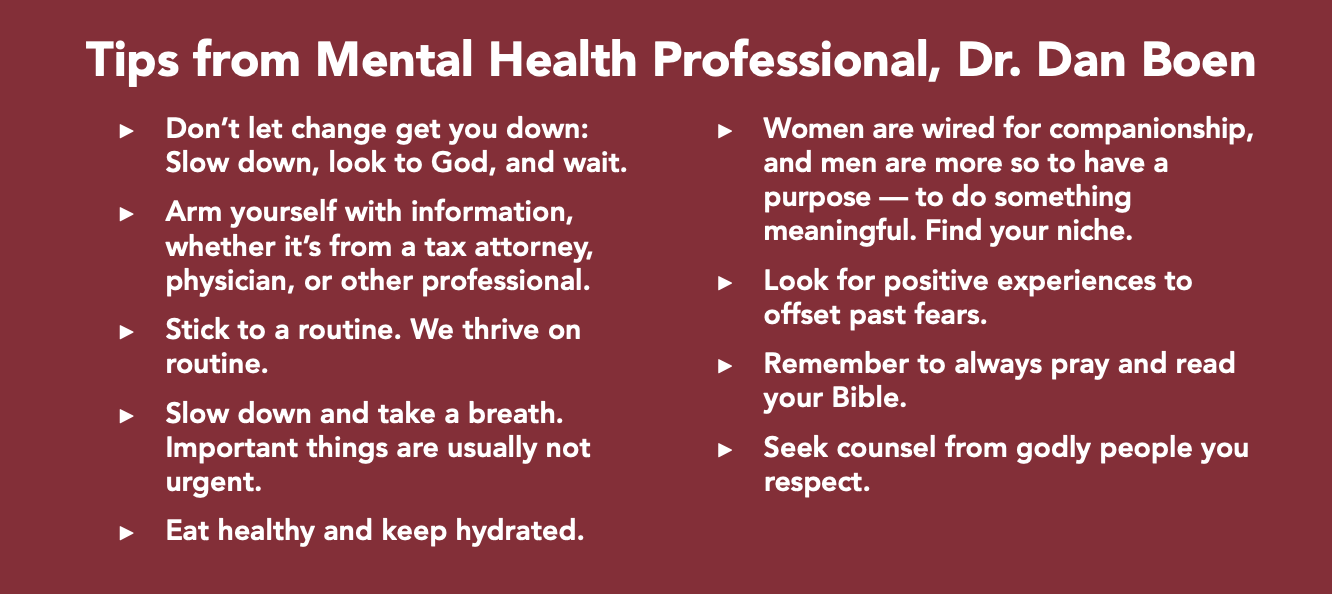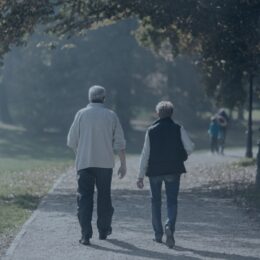
Photo by Jennifer Boen
Mary Ann Heiser-Stinson smiles in her home. While many changes have happened in her life, many are good so she lives for the positive changes.
By Jennifer Boen
Ministry Team Writer
Mary Ann Heiser-Stinson has faced an abundance of changes in her 87 years on this earth. The lifetime resident of Indiana has seen 15 U.S. presidents come and go, seen people shuttled to and from space, and observed the country at war on multiple foreign fronts, including terrorist attacks on home soil.
As she was coming of age in the 1950s, advancements in technology, science, and industry were rapidly making life easier, yet more complicated—faster yet more tiresome, prosperous but more costly, and healthier but still harmful.
Even positive, desired change is most often a mixed bag of pros and cons. One can focus on the negatives, the “what ifs,” or, like Mary Ann, choose to look at the upside.
“I’ve never dwelled on the negatives. It doesn’t do any good,” said Mary Ann, who moved to Fort Wayne from Akron, Ind., in 1957 to take a job with the Lincoln National Life Insurance Co.
Psychologist Dr. Dan Boen of Auburn (Ind.) Christian Counseling Center agrees that too many people get stuck in negative mode. The negativity toward change, particularly as we age, is related primarily to past painful or fearful experiences.
“Our imagination is tied to memory,” he said. “When we feel pain in a tooth every time we eat, we may not initially recall that negative experience we had at the dentist as a young child. But as we head to the dentist, fear sets in, and we can hardly force ourselves out of the car.”
If someone is told their health is worsening and they must move to a different residential setting, they may have all these underlying memories of certain childhood experiences—the times they sat alone in the lunch room or when they got lost in a new neighborhood walking home from school.
“Our subconscious exaggerates everything,” he said. “We carry all that stuff with us.”
Dr. Boen recommends the individual focus on a pleasant memory, perhaps a favorite vacation spot or a recent conversation with a grandchild that brought laughter or the look and smell of a flower garden on a warm sunny day.
“Change does bring stress,” he said, but he offers a word of caution. “A lot of fear is based on perception, not reality.”
Studies have shown the more people watch crime reports on TV, the higher they indicate the crime rate is in their community, even if reported crimes were not local, so be aware of what you are feeding your brain.
Relationships with others are also key in dealing with change, Dr. Boen advises. Several recent studies have looked at quantity versus quality of relationships through the lifespan.
“As we age, the quantity of relationships goes down, but the quality goes up. Companionship becomes the primary value as we age,” he said. “People need that support of others.”
Like so much else in life, loving deeply has another side, too. COVID-19 struck Mary Ann in 2023, the same year she buried her second husband, Max Stinson. They were married 20 years. She was first widowed in 1999 after a 40-year marriage to Fred Heiser. Smiles light up her face as she talks about how she met both husbands—Fred at the former Gardener’s Drive-In in downtown Fort Wayne and Max at a grief support group.
“I think when these things happen it’s meant to be. You just have to move on,” said Mary Ann, who has three children, eight grandchildren, and 18 great-grandchildren.
The desire for companionship and friendship was key in helping her make the decision to move from the home she loved to an independent living community in September 2024. Her positivity in dealing with change has not waned.
“I like it here. I’ve made a lot of friends. My kids and grandkids visit a lot,” she said.
Her strong faith and a servant’s heart keep her on the lookout for ways to help others, whether it’s helping push someone’s wheelchair or aiding someone with memory problems to play a game.
“I’m a people person. Always have been,” she said.



